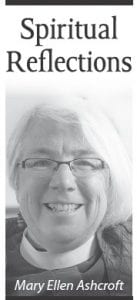Since we got broadband— really, I’m not gloating— our Internet access is amazingly fast. I was telling a friend that we’ve run out of bread since we got hooked up, since it used to take so long. My old Internet search process: Click on Google…put yeast and honey and salt and water in a bowl and mix—go back and find that Google had indeed popped up, enter a few search terms and then go and add oil and flour and mix—go back to click on the site…and then go knead the bread. Pop into pans. Now it’s so fast we have no bread. Instant!
I’m thankful for broadband, but it made me think. What does all this “instant” do for us? Besides less bread….
French philosopher/ theologian Simone Weil makes a distinction— between what is snatched and what is waited for. She says that snatching is characteristic of sin; waiting is found in faith.
Snatching is what happened in the Garden of Eden. (Why wait to taste that fruit?) Snatching is what David did when he saw Bathsheba bathing. (I’m the king and I’m in the mood….) Snatching is what we do when we must have it now.
Waiting contains an element of trust. Maybe we don’t get it now, but in God’s good time. Or God knows what we need better than we do.
Our society is all about snatching—“don’t wait, only 2 seats left at this price!” or “buy now while they last!” Want to read a book—get it on Kindle. Want to watch a movie— stream it!
The concept of Sabbath is an antidote to snatching.
When God instituted Sabbath for the people of Israel, the idea of not working one day a week, of taking time to rest—why that was crazy! When you were this close to starvation, to not having fuel to cook with, to needing water—to take one day in seven off? And to insist that your servants and animals also take it off? This idea of Sabbath, which is a command of God—one of the big 10!—was madness.
In his book about Sabbath, Walter Brueggemann points out that God’s deliverance at the Red Sea was a deliverance from Egyptian values demanding more and more production. The Egyptian overlords demanded that more and more bricks be made, and that the Hebrew people get their own straw for the bricks, and work longer hours.
The evil of this Egyptian culture was that people’s lives were forgotten in the lust for more and more and more and more: this is what the Hebrew people are delivered from as they cross the Red Sea. This commodification of people’s lives, God says, in implementing the Sabbath command—this is not the way people should live.
What does stopping for a day do? Reminds us that we’re not at the center of the universe, that production, our working harder and harder: these are not necessary. It is God who provides. Sabbath also weaves a pattern within society of resting instead of rushing.
When I talk to people in their thirties and forties, they often feel as if they are on a treadmill moving faster and faster. Longer hours, shorter vacations, little time for family. We who get to live some place like Grand Marais see an almost driven look in people’s eyes. “Okay, it’s vacation time! We must do this, that and the other, now!” In European countries people cannot believe how little vacation Americans get.
In a time like ours Sabbath is as radical as it was in those early days. How can we say “no” to the powers that push for more and more production? How can we say “no” to the temptation to snatch? And how can we incorporate Sabbath rest into our lives? God sees the Sabbath pattern as integral to people thriving—body, mind and soul.
Each month a member of the Cook County Ministerium will offer Spiritual Reflections. This month’s contributor is Mary Ellen Ashcroft, Vicar of Spirit of the Wilderness Episcopal Church.



Loading Comments